Choosing between the Volvo XC90 vs Audi Q7 is never as easy as it sounds. Both luxury midsize SUVs are known for their elegant design, cutting-edge technology, and impressive versatility.
While the Audi Q7 leans more toward sporty dynamics and premium finishes, the Volvo XC90 shines with its Scandinavian minimalism, spaciousness, and advanced safety features.
If you’re torn between the two, this buying guide will break down everything from performance and design to practicality and pricing to help you decide whether the Audi Q7 or Volvo XC90 is the right fit for you.
Overview of the Volvo XC90 and Audi Q7
Before diving deeper, it’s worth understanding what each SUV brings to the table.
- Volvo XC90
The XC90 is Volvo’s flagship SUV, offering seating for up to seven passengers. It’s well-known for its sleek Scandinavian styling, innovative plug-in hybrid options, and industry-leading safety technologies. The XC90 appeals to families who prioritize comfort, efficiency, and elegance in one package. - Audi Q7
The Audi Q7, on the other hand, represents German luxury at its best. It combines a sporty design with dynamic driving performance, advanced infotainment, and a tech-rich interior. Like the XC90, it also offers three rows of seating, making it a strong contender in the luxury midsize SUV segment.
When comparing XC90 vs Q7, it’s clear that while both vehicles share similarities in size and features, their personalities are quite different.
Design and Aesthetics
Volvo XC90
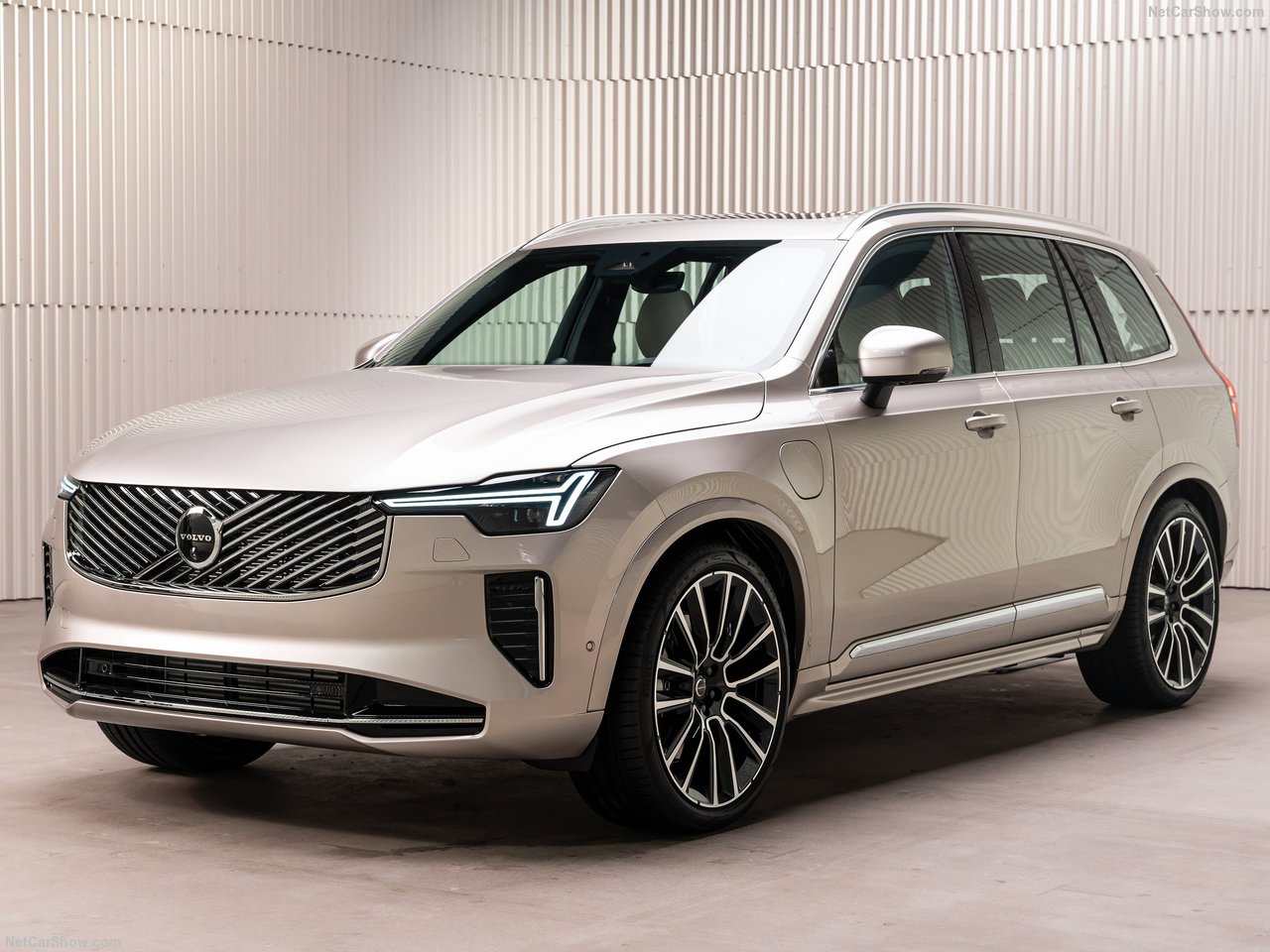
The Volvo XC90 embodies a minimalist, elegant Scandinavian design. Its exterior is clean and modern, with signature “Thor’s Hammer” LED headlights and understated body lines. Inside, you’re welcomed with premium materials like driftwood trim, Nappa leather, and open-pore wood accents. The cabin feels airy and spacious, enhanced by a standard panoramic sunroof.
Audi Q7
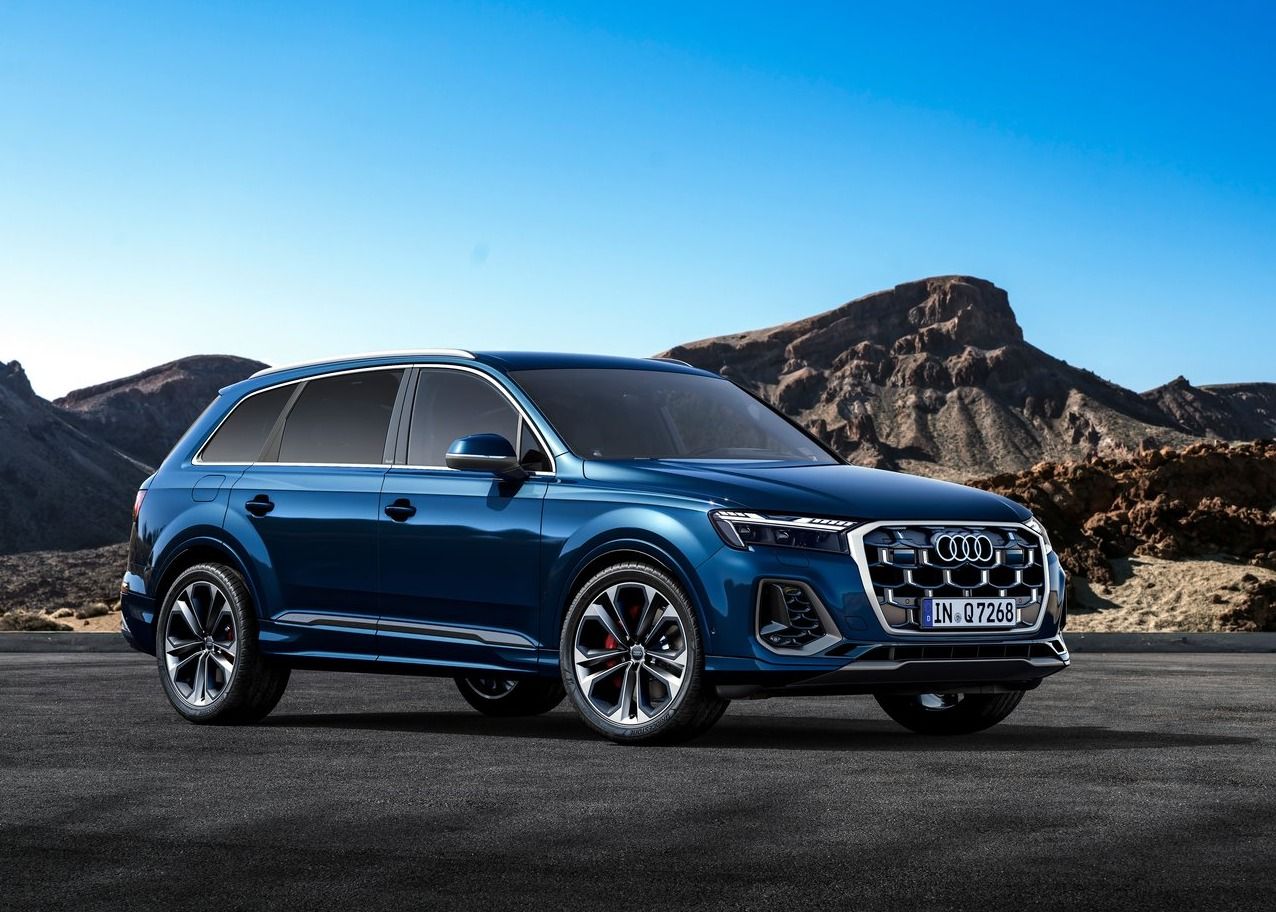
The Audi Q7 takes a more aggressive and sporty approach. Its bold grille, sharp lines, and Matrix-design LED headlights emphasize its German engineering heritage. Inside, the Q7 features a driver-focused cockpit with high-quality materials, a dual touchscreen setup, and customizable ambient lighting. The cabin feels a bit cozier compared to the XC90, but it exudes modern luxury.
Verdict: If you prefer minimalism and a serene atmosphere, the XC90 is the better choice. For those who like bold styling and sportiness, the Q7 has the edge.
Interior Space and Comfort
Volvo XC90
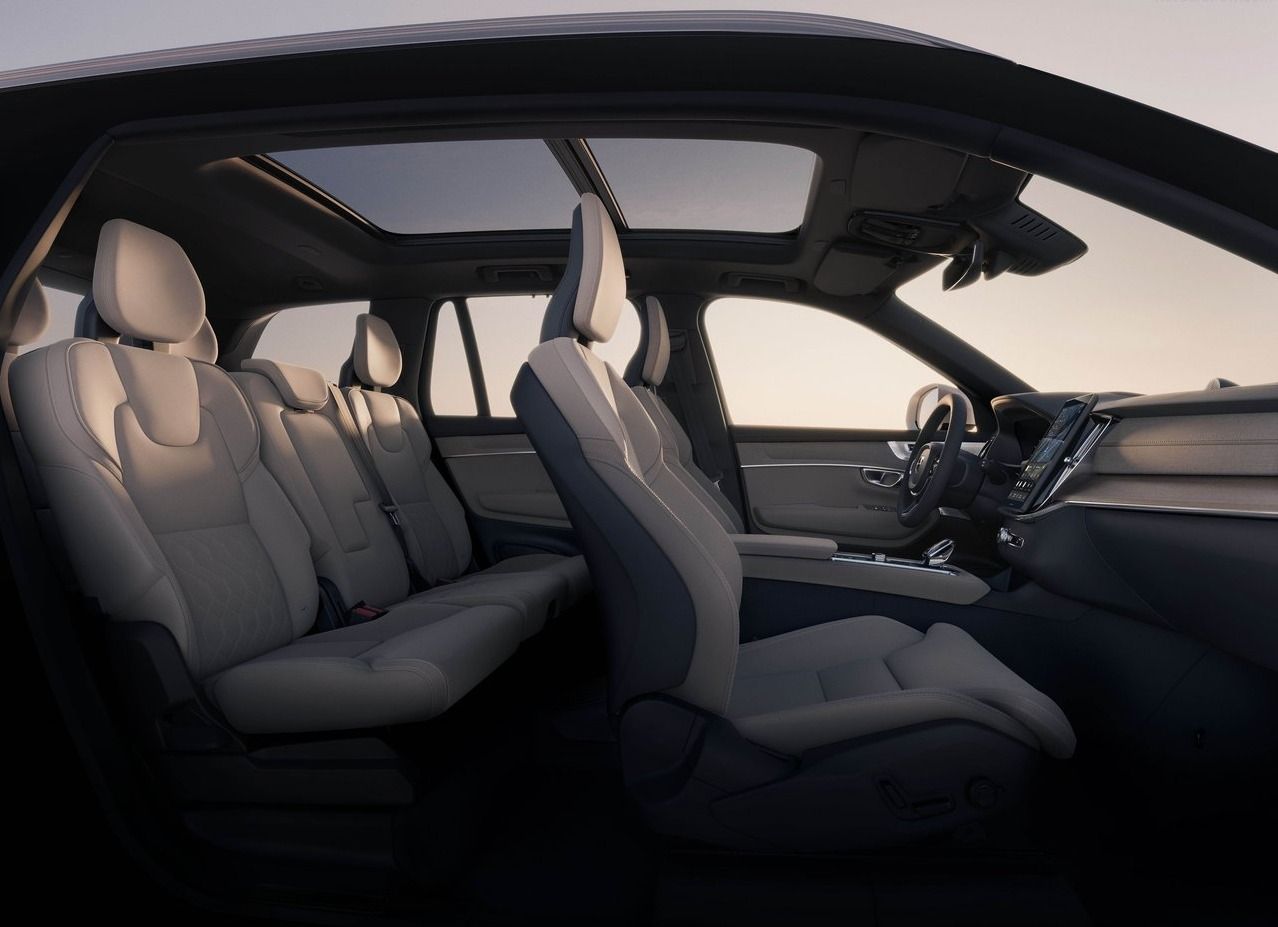
The XC90 is one of the roomiest SUVs in its class. Its three rows can accommodate up to seven passengers comfortably, and even the third row is usable for adults on short trips. The cargo area is generous, offering 15.8 cubic feet behind the third row and up to 85.7 cubic feet with all seats folded. Volvo’s seats are also widely regarded as some of the most comfortable in the industry.
Audi Q7
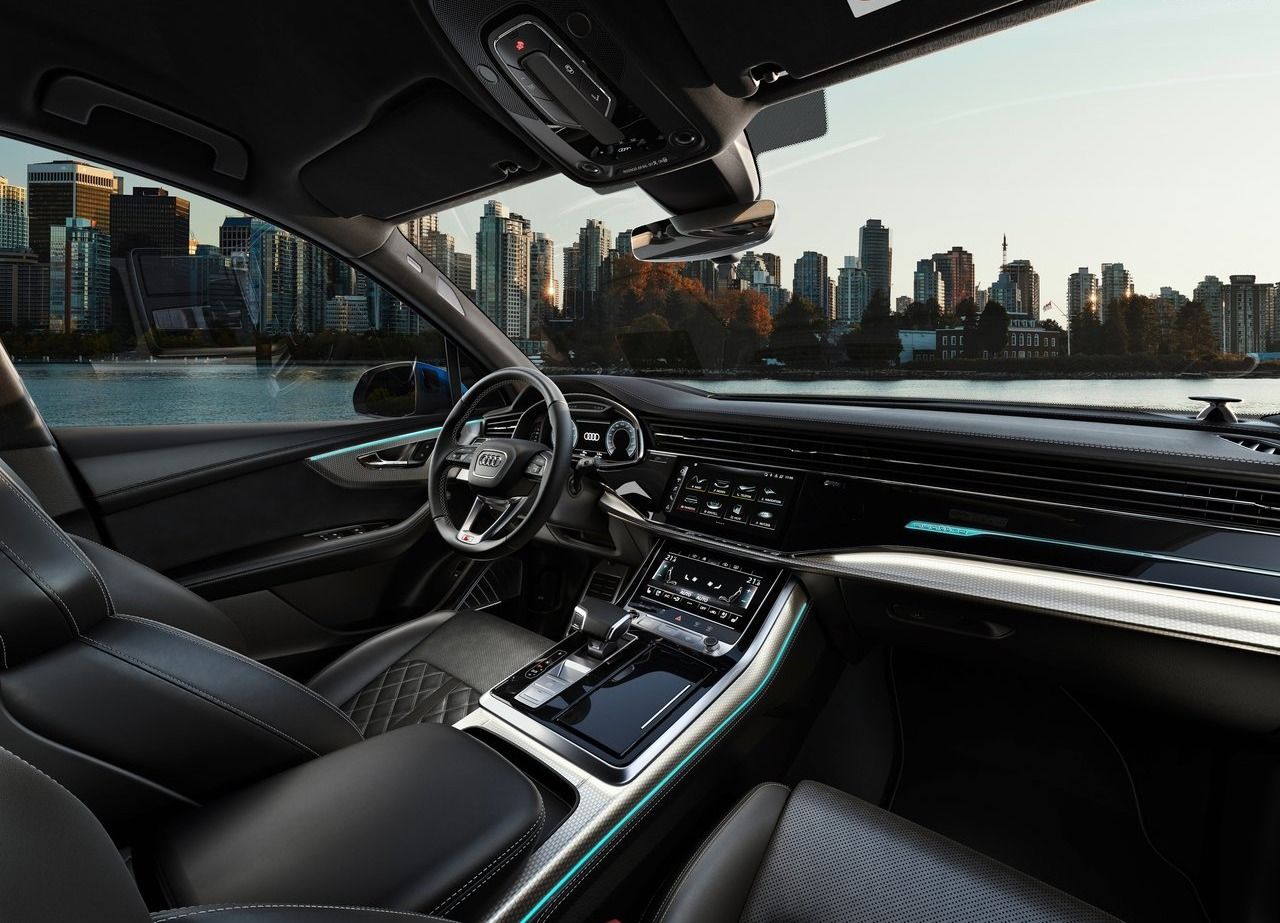
The Audi Q7 also offers three rows, but its third row is more suitable for children or smaller adults. Cargo capacity is slightly smaller than the XC90, with 14.2 cubic feet behind the third row and 69.6 cubic feet with seats folded. The Q7, however, counters with superb front-row ergonomics, supportive seating, and a more cocoon-like luxury feel.
Verdict: For families needing maximum space and usability, the XC90 wins. If you value plush comfort in the first two rows, the Q7 is excellent.
Performance and Driving Dynamics
Volvo XC90
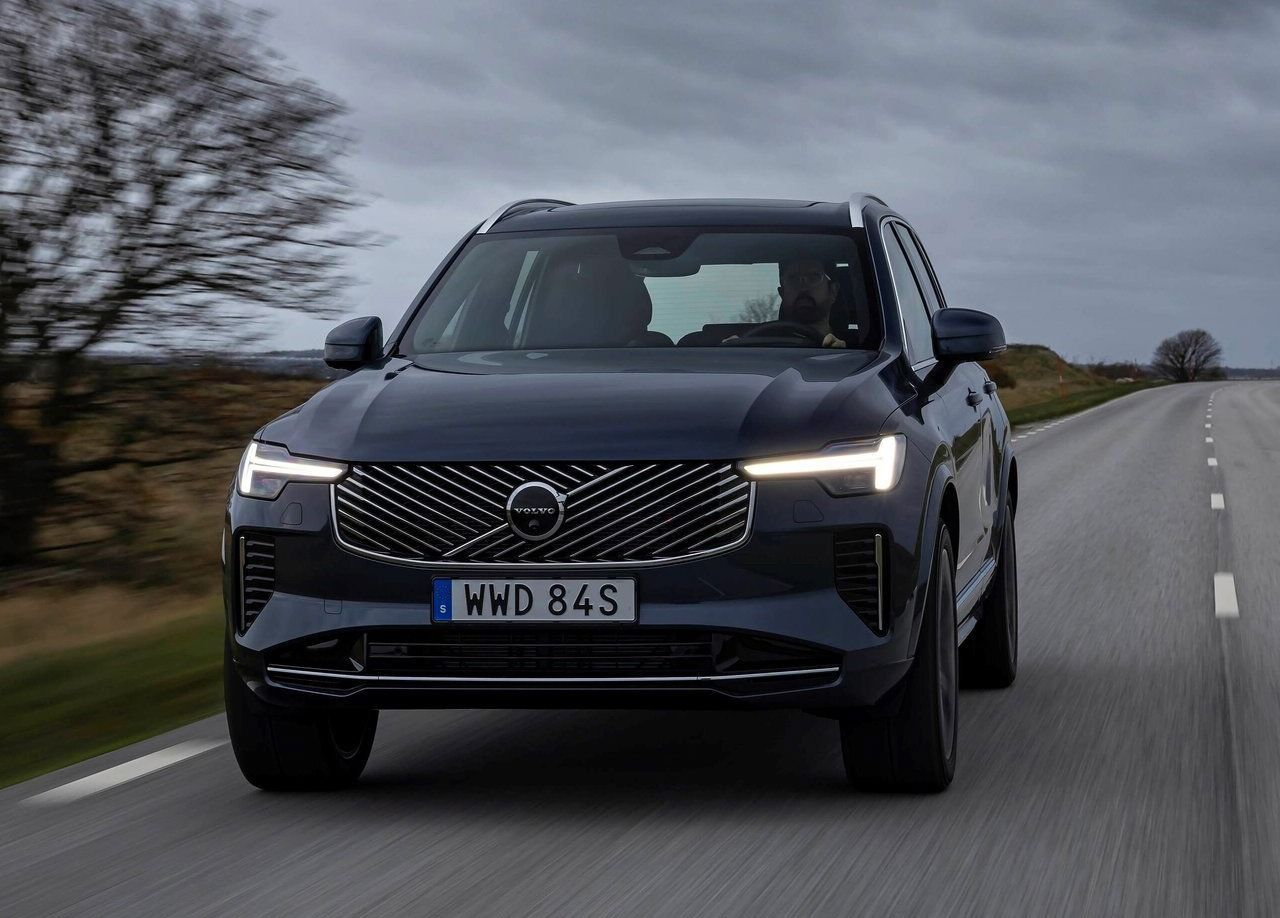
The XC90 offers multiple engine options, including mild-hybrid and plug-in hybrid powertrains. The plug-in hybrid model (XC90 Recharge) delivers strong acceleration, combining a turbocharged and supercharged engine with electric assistance to produce up to 455 horsepower. While performance is impressive, the XC90 prioritizes comfort and efficiency over sporty dynamics.
Audi Q7
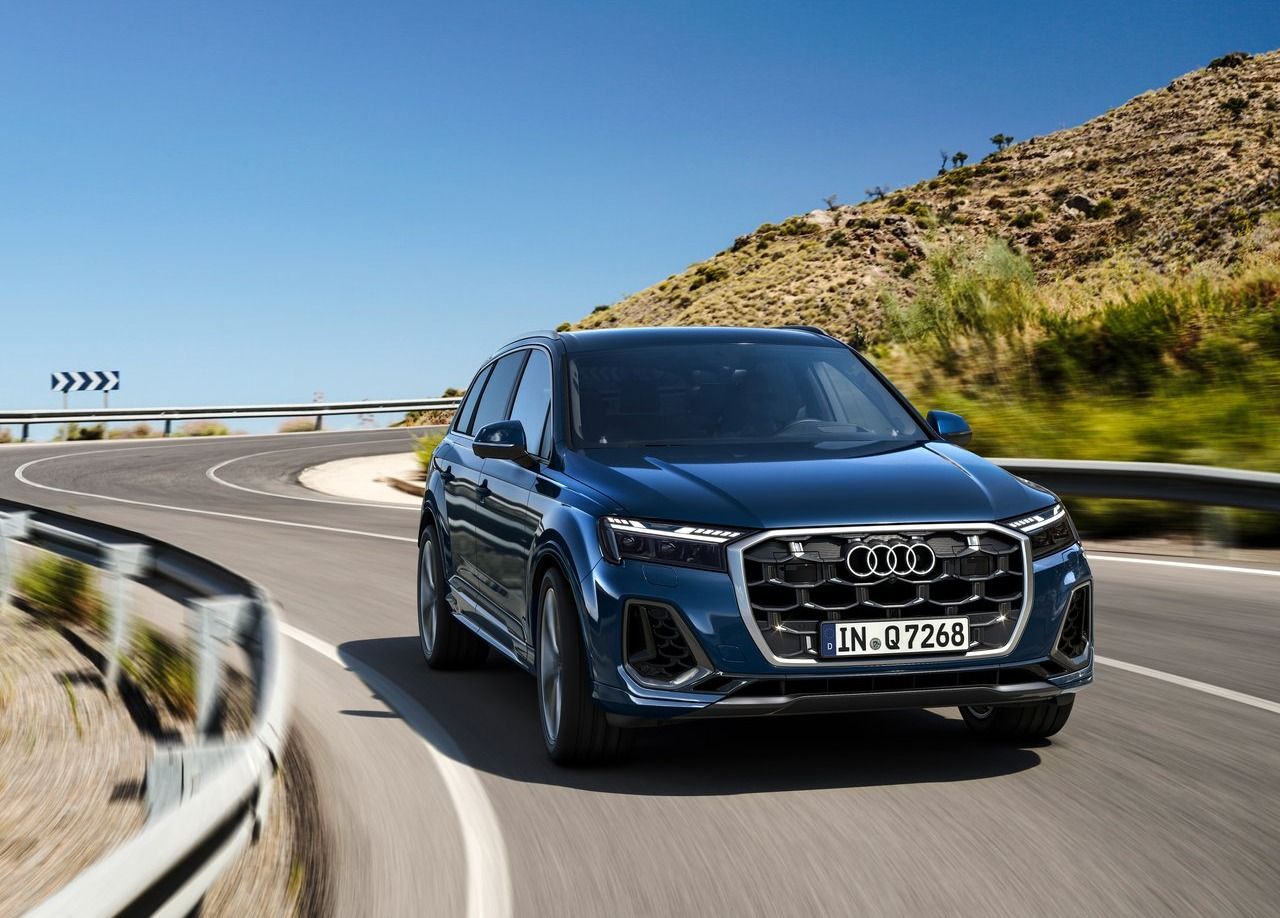
Performance is where the Q7 shines. With its standard quattro all-wheel-drive system, sharp handling, and available turbocharged V6 engine, the Q7 feels agile for its size. It’s more engaging on twisty roads and offers a sportier ride compared to the XC90. The Q7 balances power and refinement seamlessly, making it a great choice for driving enthusiasts.
Verdict: If driving pleasure matters most, the Q7 takes the lead. If efficiency and hybrid options appeal to you, the XC90 is the smarter pick.
Technology and Infotainment
Volvo XC90
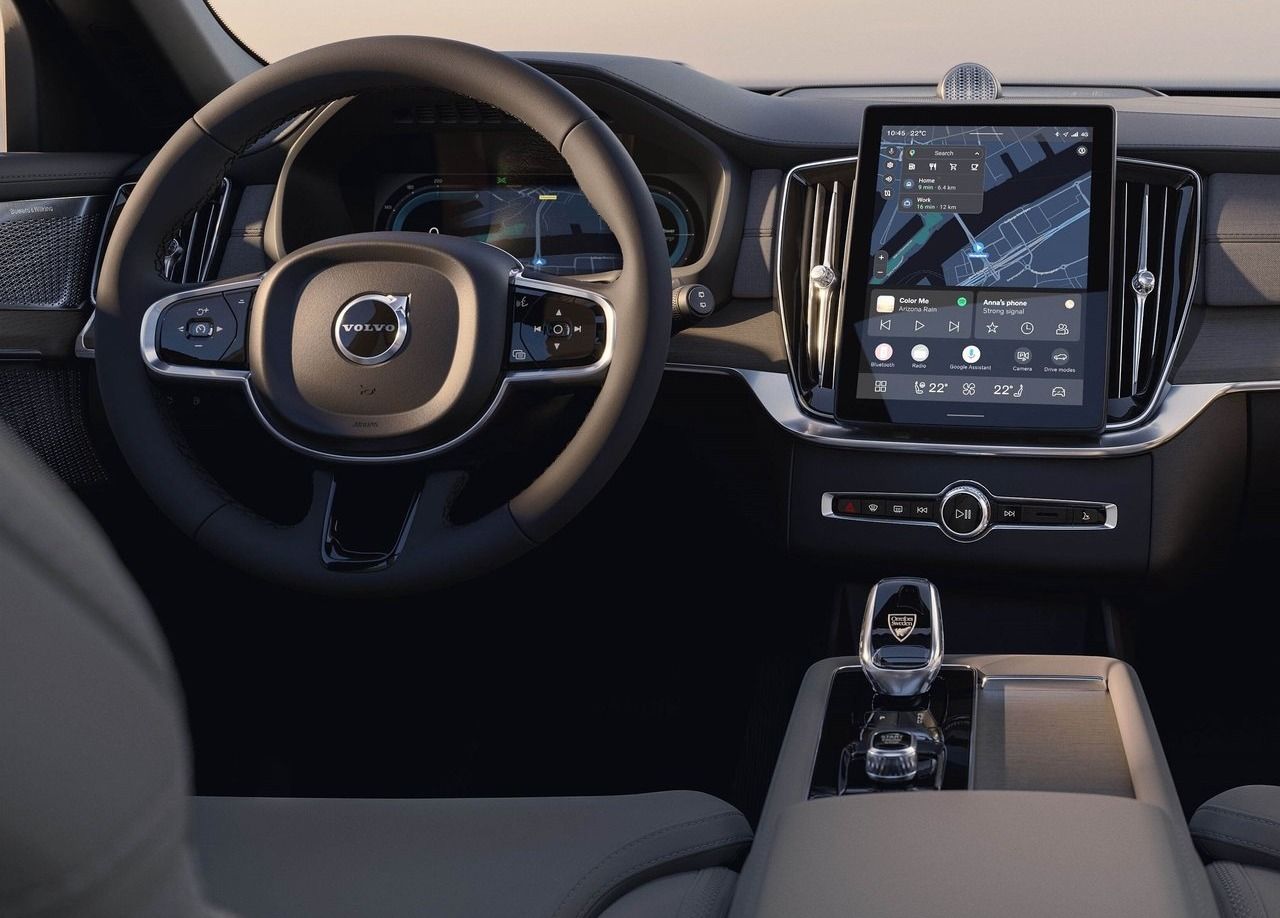
Volvo equips the XC90 with a vertically oriented 9-inch touchscreen that supports Google Built-in features, Apple CarPlay, and Android Auto. The system is intuitive, though it has a steeper learning curve than Audi’s interface. A premium Bowers & Wilkins audio system is available tp turn the cabin into a concert hall.
Audi Q7
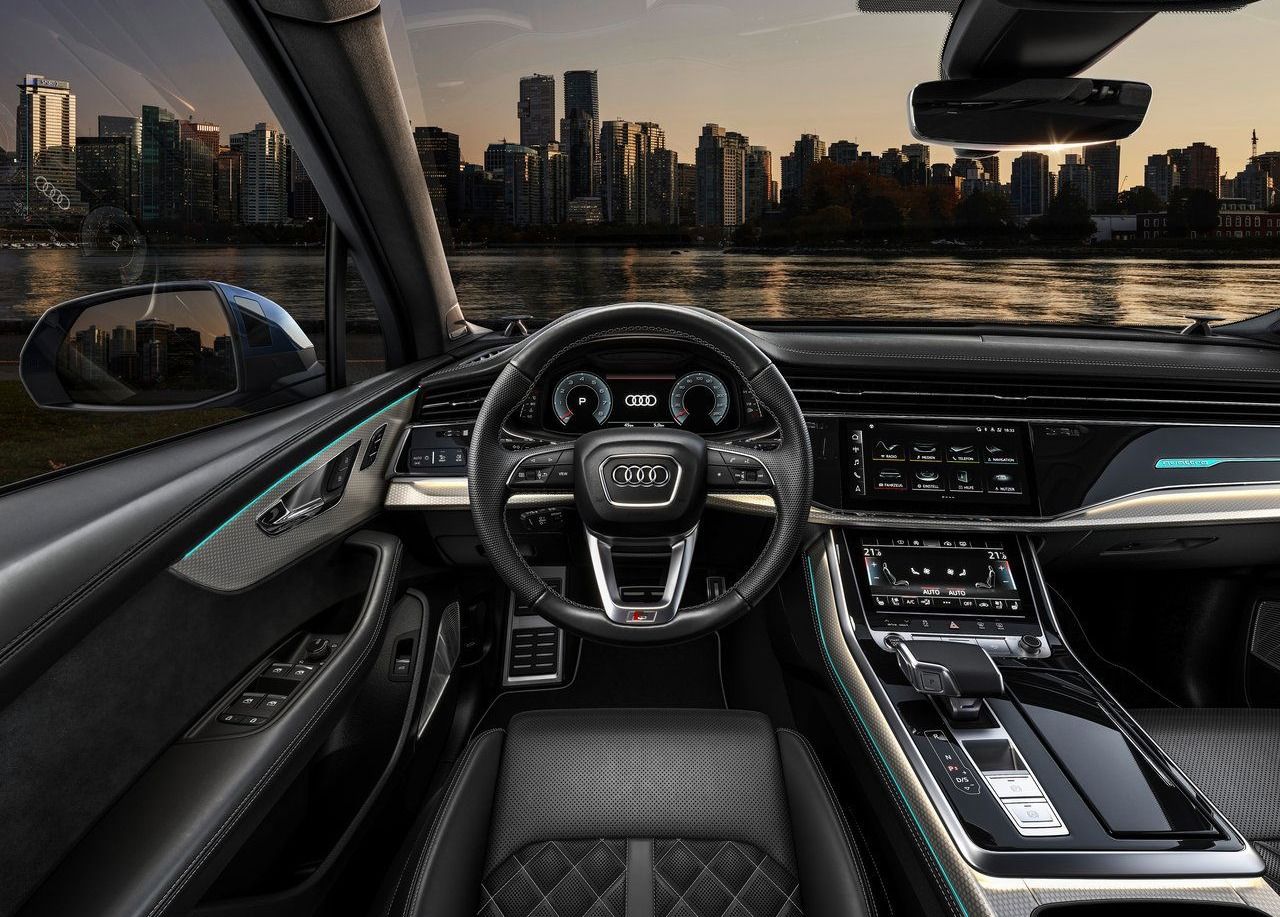
The Q7 uses Audi’s MMI Touch Response system with two large touchscreens and a 12.3-inch Virtual Cockpit digital gauge cluster. It’s one of the most advanced and visually striking systems in the industry. Audi also offers a Bang & Olufsen premium audio system, which rivals Volvo’s Bowers & Wilkins setup.
Verdict: Audi takes the crown for high-tech wow factor, but Volvo’s system integrates better with Google services.
Safety Features
Volvo XC90
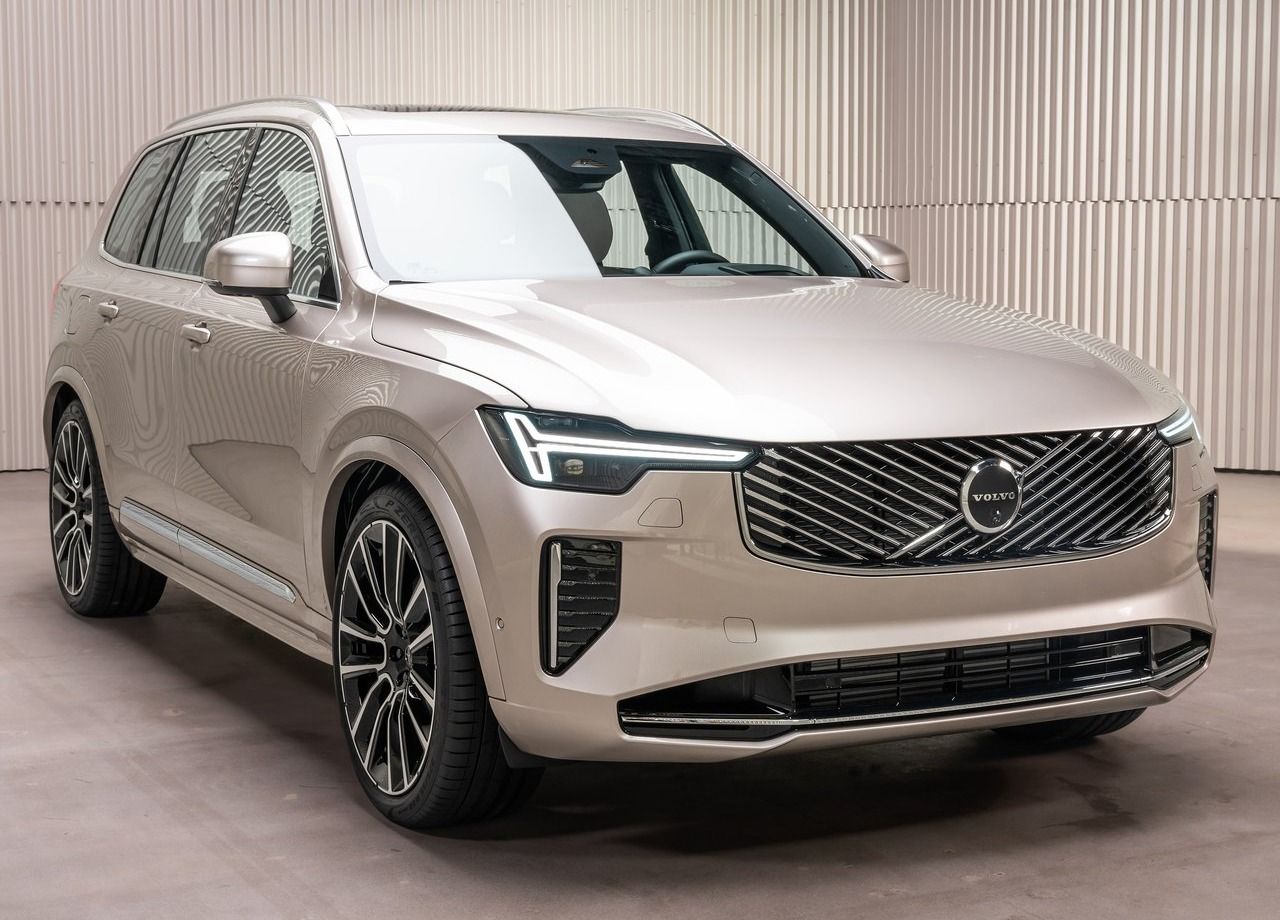
Safety is Volvo’s calling card. The XC90 comes standard with a wide array of driver-assistance technologies, including Pilot Assist semi-autonomous driving, blind-spot monitoring, cross-traffic alert, lane-keeping aid, and automatic emergency braking. It consistently earns top safety ratings worldwide.
Audi Q7
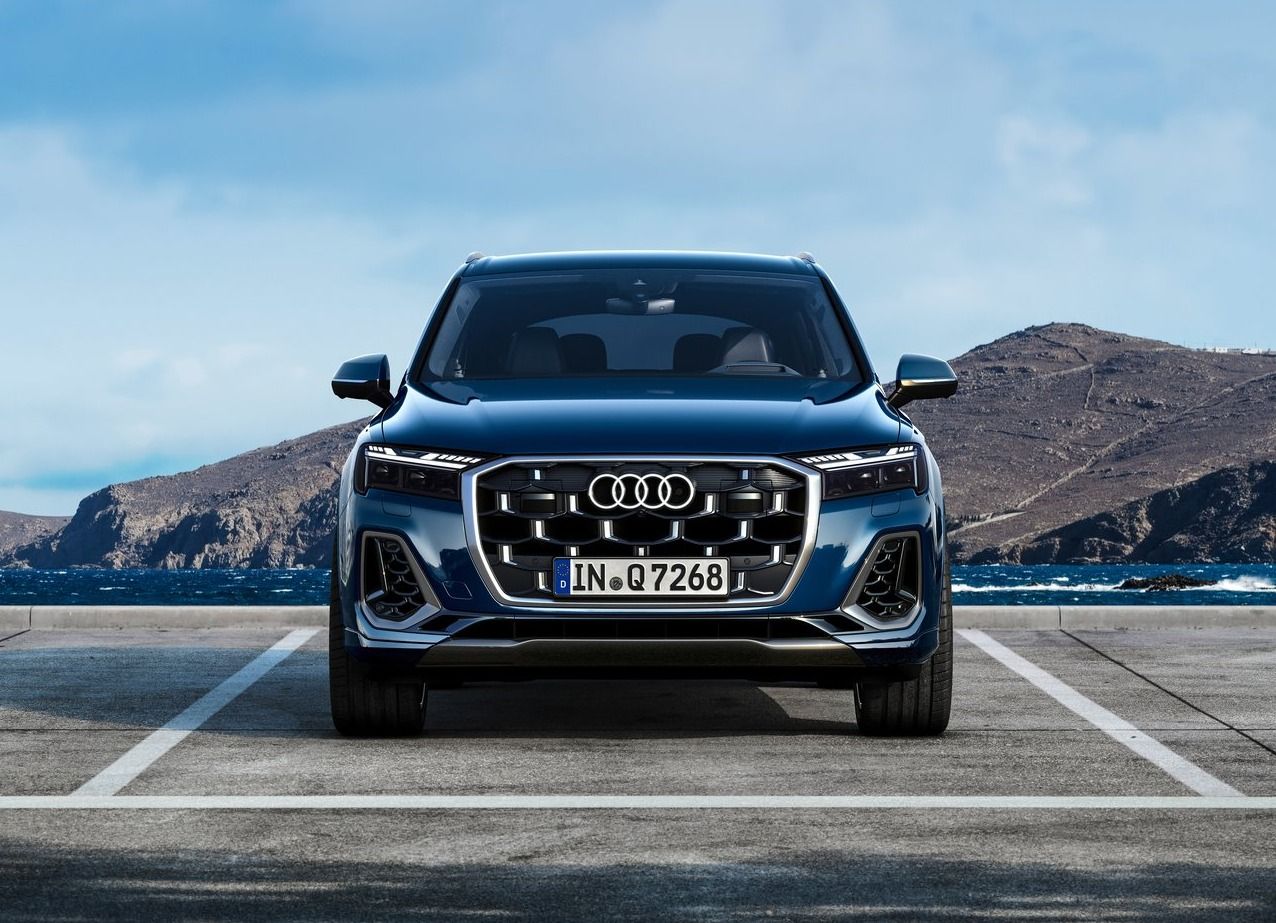
The Audi Q7 also offers advanced safety features like adaptive cruise assist, lane departure warning, and a surround-view camera system. However, some features are only available in higher trims or packages, while Volvo includes more as standard.
Verdict: Both SUVs are very safe, but the XC90 offers more standard features.
Fuel Efficiency and Sustainability
Volvo XC90
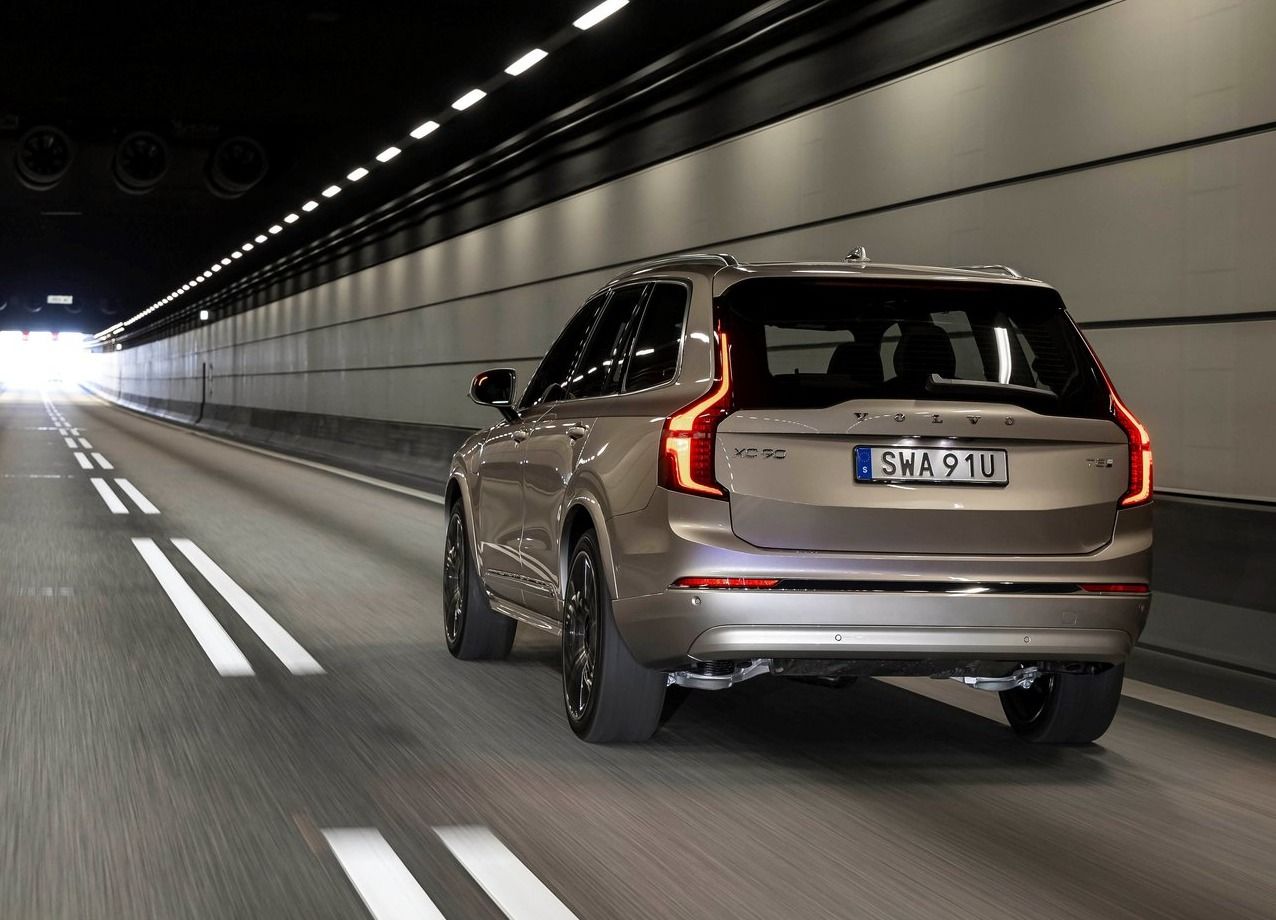
The plug-in hybrid version of the XC90 stands out with an all-electric driving range of about 32 miles, perfect for short commutes without using fuel. Mild-hybrid options also boost fuel economy compared to traditional SUVs.
Audi Q7
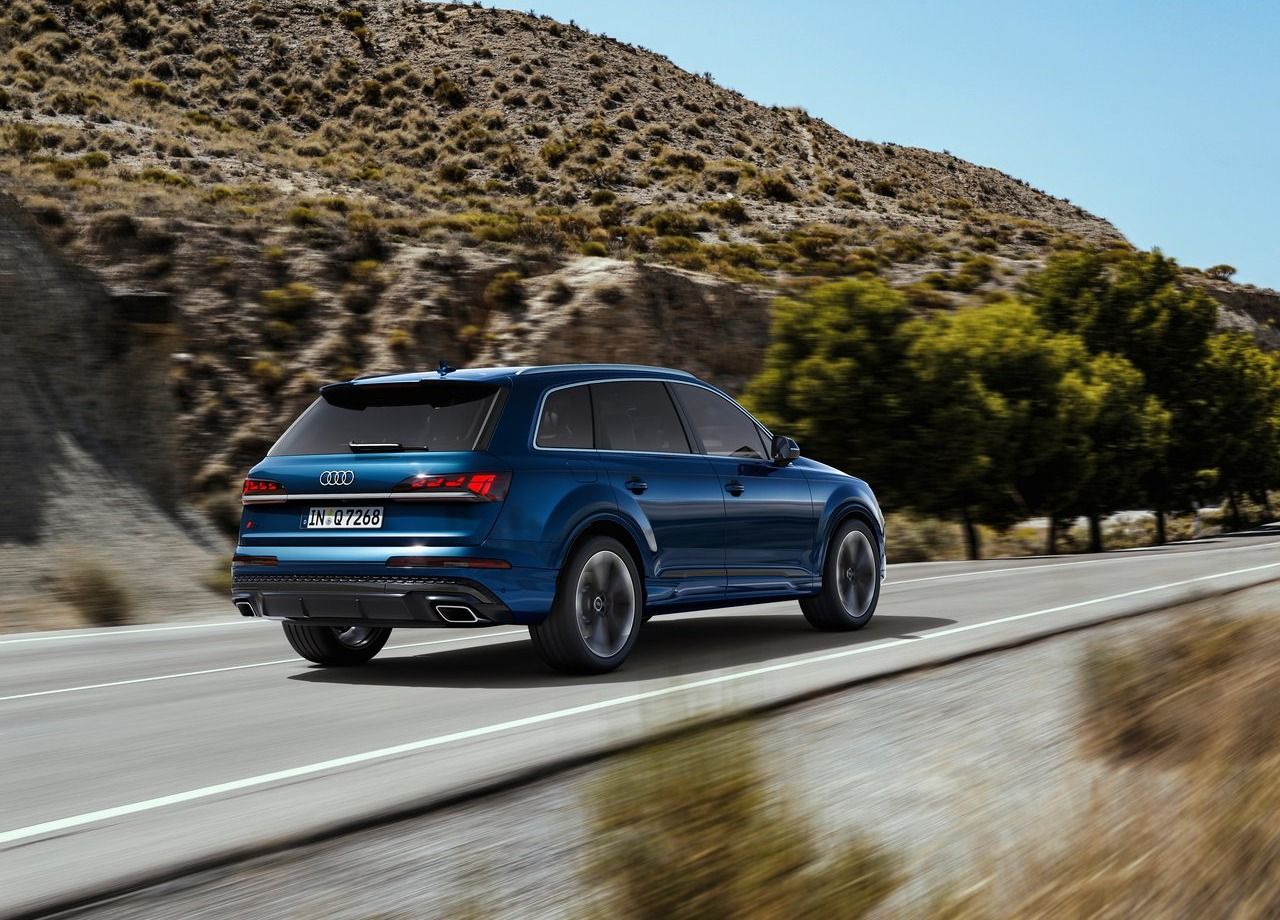
The Q7 focuses more on performance, so fuel efficiency isn’t its strong suit. Its turbocharged engines are powerful but consume more fuel, averaging around 20 mpg combined depending on configuration.
Verdict: For eco-conscious buyers, the XC90 is the clear winner.
Pricing and Value
Volvo XC90
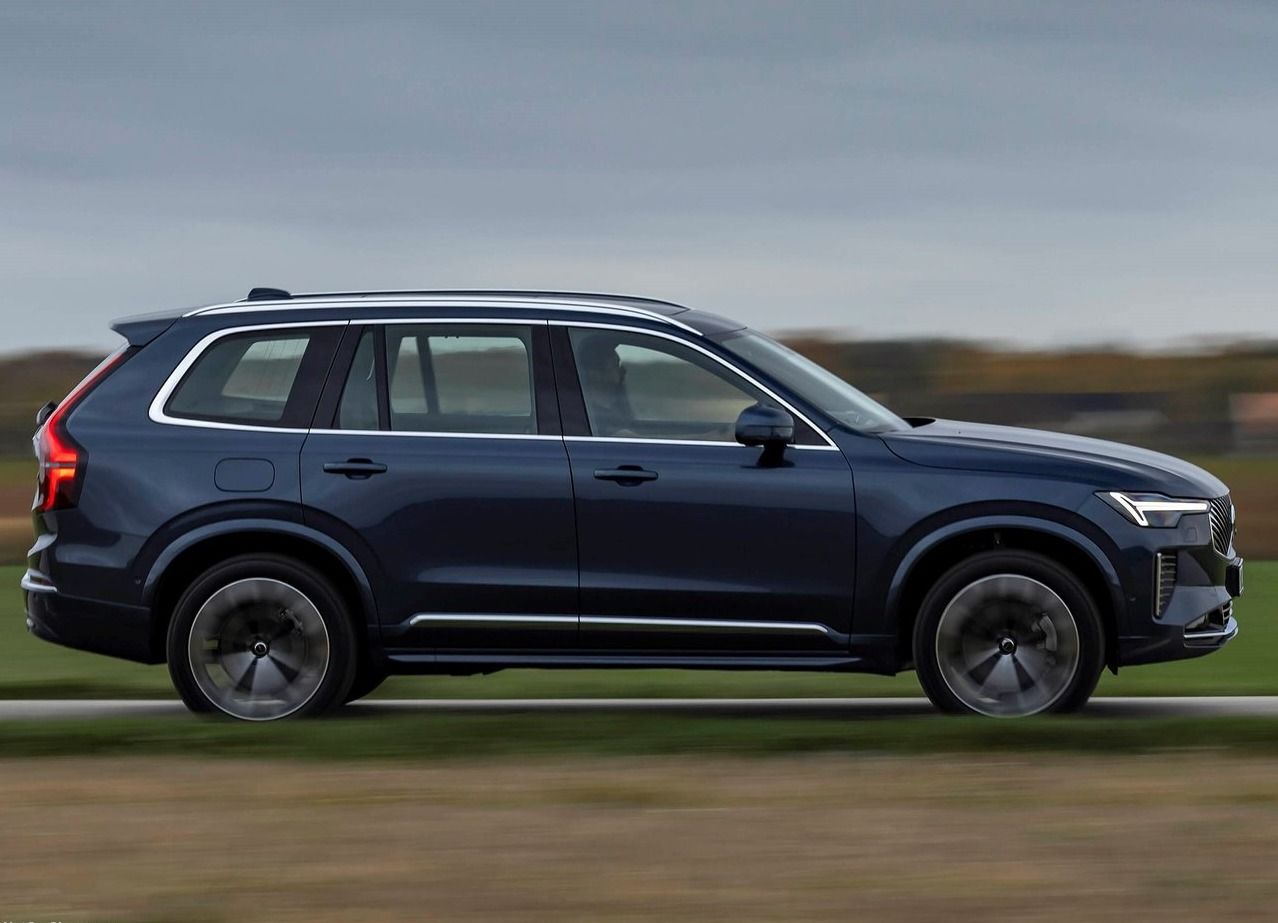
The base XC90 starts at around $57,000, while the plug-in hybrid Recharge model can climb past $70,000 depending on options. Considering its space, safety, and hybrid technology, the XC90 offers strong value for families.
Audi Q7
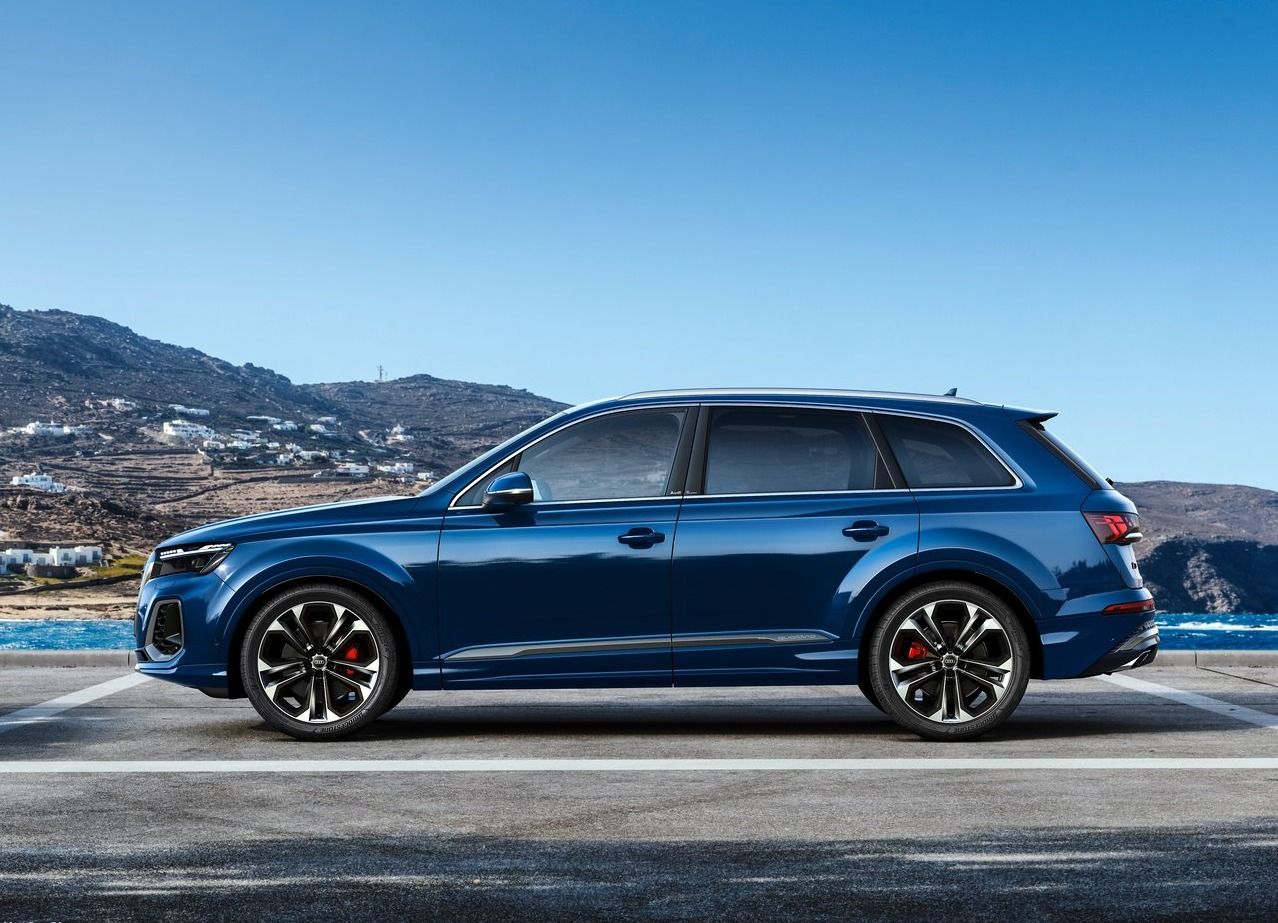
The Q7 starts slightly lower, around $56,000, but higher trims and performance upgrades can push it beyond $75,000. Audi’s pricing reflects its performance credentials and premium interior touches.
Verdict: Both offer good value, but your preference—efficiency vs performance—will determine which is better for your budget.
Reliability and Ownership Costs
- Volvo XC90: Volvo’s reliability is average in the luxury SUV segment, but lower maintenance costs for hybrids and plug-in models can help offset ownership expenses.
- Audi Q7: The Q7 has a reputation for higher maintenance costs, particularly as it ages, due to its complex electronics and performance-oriented drivetrain.
Verdict: Long-term, the XC90 may be slightly easier on the wallet, especially with hybrid efficiency.
Resale Value
Luxury SUVs typically depreciate faster than mainstream models, but both the XC90 and Q7 hold their value reasonably well. Volvo benefits from its growing popularity in the U.S. market, while Audi maintains strong brand prestige. Generally, the XC90 may have a slight edge in resale value thanks to its hybrid powertrain appeal.
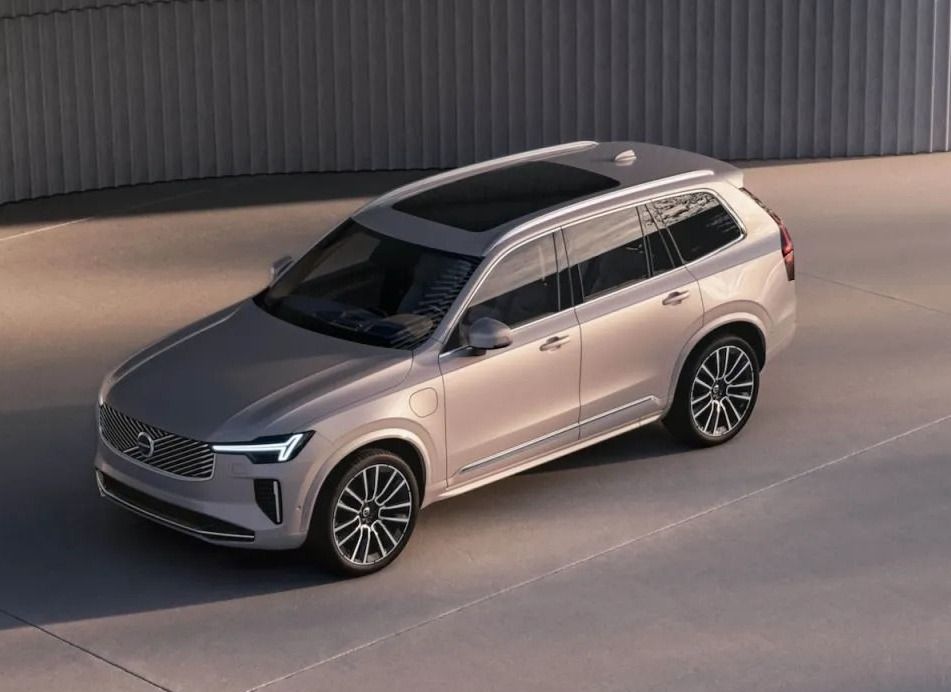
Which Should You Buy: Audi Q7 or Volvo XC90?
When deciding between the Audi Q7 or Volvo XC90, it ultimately comes down to your lifestyle and priorities:
- Choose the Volvo XC90 if:
- You want maximum passenger and cargo space.
- Safety and driver-assistance tech are top priorities.
- You prefer eco-friendly hybrid or plug-in hybrid options.
- You love minimalist, Scandinavian-inspired design.
- Choose the Audi Q7 if:
- You prioritize sporty handling and engaging performance.
- A high-tech, futuristic cabin appeals to you.
- You value bold exterior styling and German craftsmanship.
- You don’t mind sacrificing a bit of third-row space for a more driver-centric feel.
Final Thoughts
The XC90 vs Q7 debate doesn’t have a one-size-fits-all answer. Both SUVs excel in their own ways. The Volvo XC90 caters to families seeking safety, space, and sustainability, while the Audi Q7 attracts those who desire sporty performance and cutting-edge luxury.
If you’re drawn to eco-friendliness and Scandinavian elegance, the XC90 may be your perfect match. But if thrilling drives and German precision call your name, the Q7 won’t disappoint. Either way, both SUVs stand tall as two of the best luxury three-row options available today.